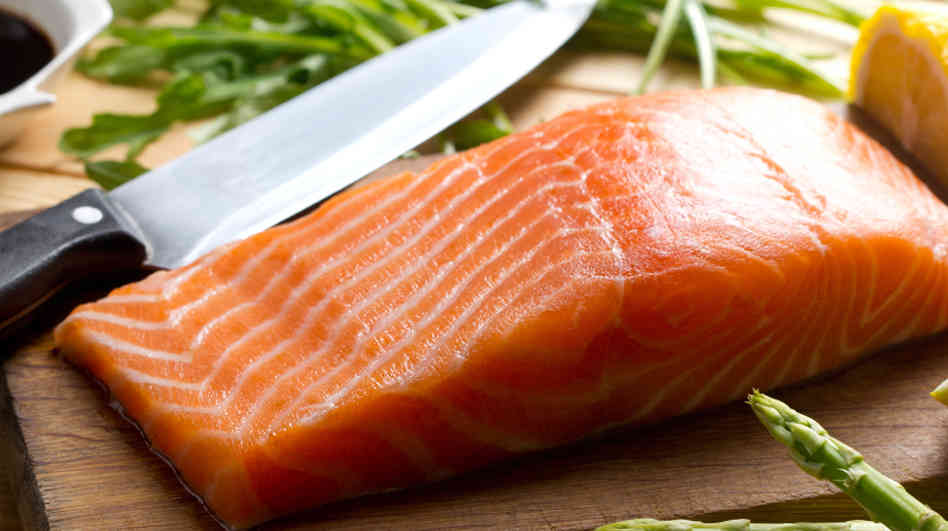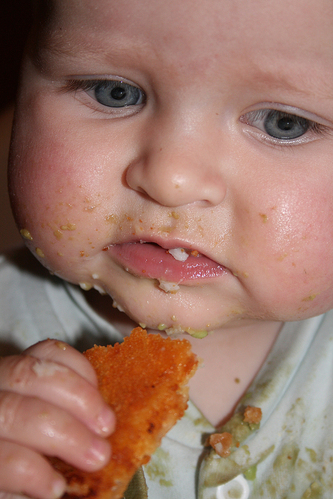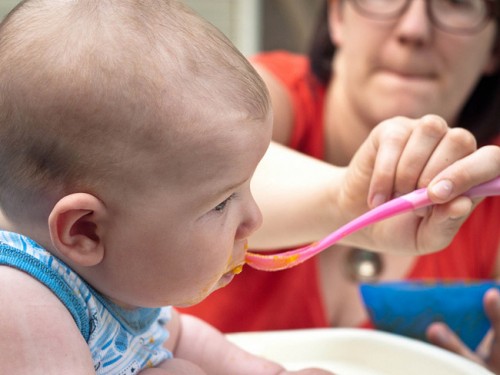Asthma in Preschool May Link Somehow to Not Eating Fish?
Ok, this is a tiny little study from the medical school in Rotterdam, Netherlands, but it has caused such a furor in “food fanatic” and “mommy blogs” on the internet that it just demands a comment and explanation.
Here’s the research study’s findings: “Children who were introduced to fish between 6 and 12 months had a significantly lower prevalence of wheezing at 48 months than children who were not introduced to fish in the first year of life.” Additionally “both fish introduction between 0 and 6 months and no introduction in the first year of life were associated with an increased prevalence of wheezing and shortness of breath at 48 months.”
What do you think that statement said? It does NOT say that eating fish at 6 to 12 months prevents allergies. It does NOT say that NOT eating fish by 12 months gives you asthma; nor does it say eating fish after 12 months gives you asthma. It says absolutely nothing about “allergies” at all – it only addresses asthma.
It does NOT imply that eating fish before 6 months gives you asthma. YET, these are exactly the claims that I’ve read “exposed” in blogs all over! In fact, I’ve become terribly skeptic about anything I read on the internet in spite of that fact that it’s all the “kids” seems to use as their information source these days. (By “kid” I mean pretty much anyone under 55.)
On this particular issue there is definitely more on the web that is wrong than what is honest, true and fair.
The Research Study and Findings.
The prevalence of asthma in western cultures has risen in the past 10 years to such an extent that it is of near epidemic proportions. If you’ve not been raising kids for more than ten years you probably are too close to “how it is now” to even recognize the problem; but we do. It’s not good and it’s no joke.
 It’s a significant problem that demands a better understanding because having asthma is not fun – or healthy. Many studies so far have revealed that we better look at what we are feeding children; because, time after time it comes up that diets high in fish, vegetables, and fruit seem to “protect” pregnant women and school-aged children from asthma.
It’s a significant problem that demands a better understanding because having asthma is not fun – or healthy. Many studies so far have revealed that we better look at what we are feeding children; because, time after time it comes up that diets high in fish, vegetables, and fruit seem to “protect” pregnant women and school-aged children from asthma.
By that I mean the group that eats them is statistically NOT the group that is having the explosion of new asthma cases. We know that eating a diet rich in these foods (and obviously less in other foods), on paper at least, lowers the “risk” of developing asthma in your life.
These laudable researchers sought to tease out the unique role fish seems to have in this puzzle, I’m sure at least partly due to the fact that their culture uses fish highly in their diet and it is abundant. Previously we’ve found that early life exposure to n-3 polyunsaturated fatty acids (n-3 PUFA), a major component in fatty fish, protects against developing asthma.
This study merely wanted to clarify, if they could, any optimal window of time for introducing fish into infants’ diets and, if they could, quantify how much fish to eat; because, good asthma studies in young children are scarce and contradictory.
In addition, the Netherlands has an ongoing, massive “Generation R” study underway. A 7,210 infant birth cohort born between Apr 2002 and Jan 2006 is being studied intensively with questionnaires about nearly everything including infant feeding practices. At 12 and 14 months parents were asked about their infants first fish and which kind it was.
Fatty fish are eel, herring, mackerel and salmon. Other fish – cod, flounder, haddock, Pollack, sole, squid, swordfish, tilapia, trout, tuna and whitefish – all have fat content less than 10 percent.
The Rest of the Story
 This study, like other massive cohort studies relies substantially on questionnaires and therefore suffers from issues of veracity (truthfulness) and reliability (understanding and recollection). There could have been some misreporting of the timing reported although the 12 and the 14 month assessments showed substantial agreement.
This study, like other massive cohort studies relies substantially on questionnaires and therefore suffers from issues of veracity (truthfulness) and reliability (understanding and recollection). There could have been some misreporting of the timing reported although the 12 and the 14 month assessments showed substantial agreement.
Also, because of lack of actual medical data to correlate with, they needed to rely on parental reports of the children’s asthma-like symptoms which may or may not be accurate.
They found no association between the amount of fish the infants ate and their asthma symptoms which suggests that in future studies there needs to be some blood testing to objectively delineate potential benefits of n-3 PUFA.
If It Were Me
The authors themselves concluded that: “Introduction of fish between the age of 6 and 12 months but not dietary fish intake at 14 months was associated with a lower prevalence of wheezing at preschool age. A specific window of opportunity between the age of 6 and 12 months might exist in which fish may protect against asthma.”
That narrow statement seems fair to me and I wouldn’t read any more into it than that; hoping that others continue on and help delineate the situation rapidly.
I’d not feed the baby solid foods (except maybe rice cereal) until six months of age. At that time I’d introduce pureed food, perhaps single foods at first, but progressing toward a wide variety of food experiences. I’d carefully watch that they not develop an inordinate proclivity to any one food and take measures to curtail any that seemed to be developing.
I’d introduce each new food with a smile on my face and in a positive manner – even if it was something that I didn’t prefer. I’d hold off on the sweeter foods until after I saw at least a tolerance for the nutrient rich foods, and then give them at the end of the feeding. And, I’d not hold on the puree too long and begin mashing home cooked foods as tolerated.
And, one of the first foods I’d introduce is home cooked Salmon, carefully picked through for bones and pureed, perhaps with a small amount of steamed carrots and diluted with a small amount of water or milk or even formula.
It’s making my mouth water just thinking about it; and there’s no reason to overcook a baby’s food into rubber either.
[Pediatrics, 12 Nov 2013]

